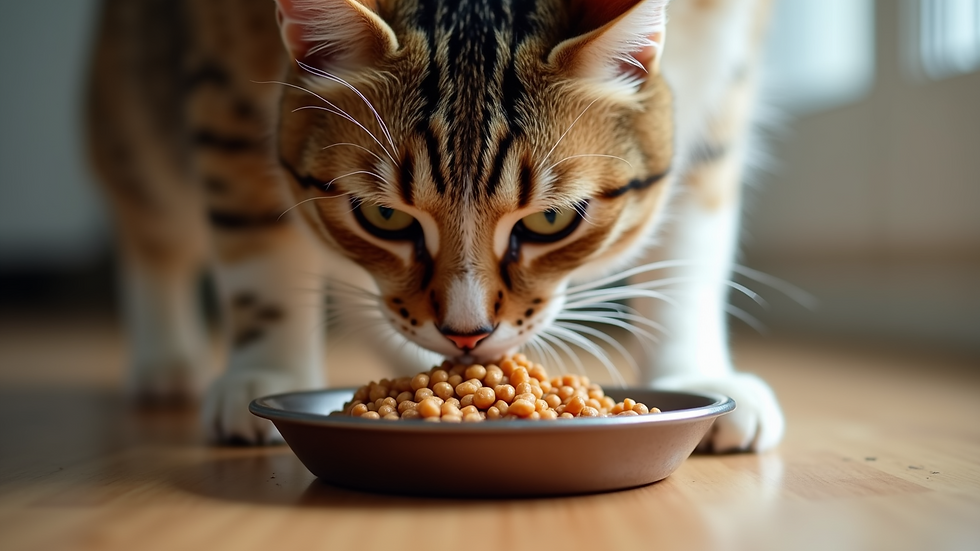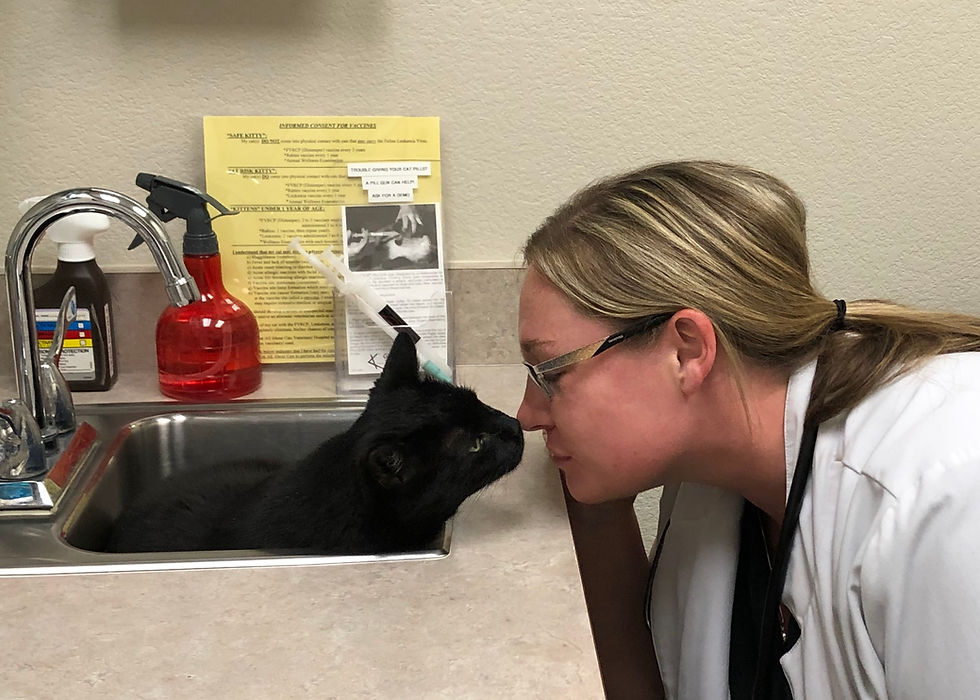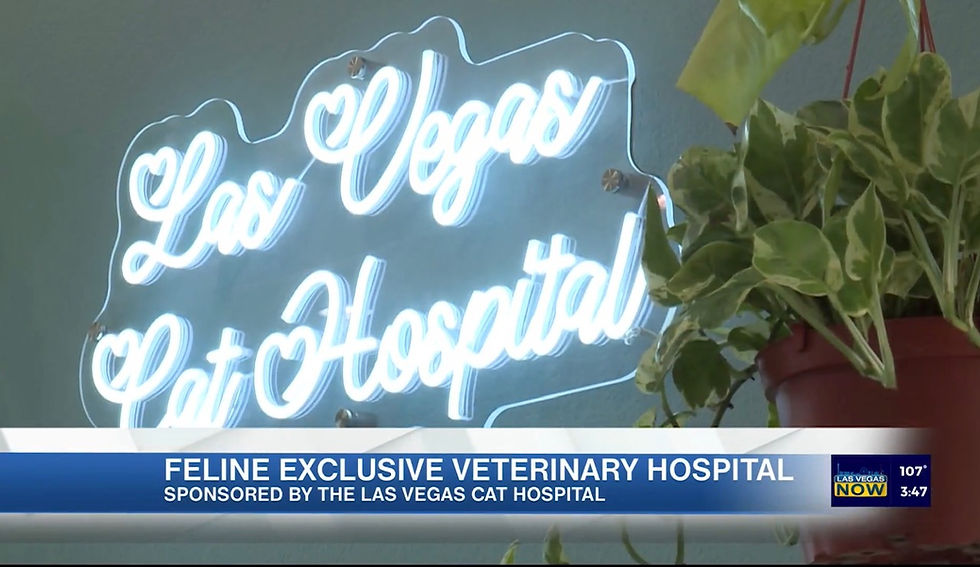Recognizing Symptoms of Feline Kidney Disease
- thecathospitallv
- Aug 19, 2025
- 3 min read
Updated: Aug 21, 2025
When our feline friends start acting differently, it can be worrying. One health issue that often goes unnoticed until it’s advanced is kidney disease. As a cat owner, understanding the early signs can make a huge difference. I want to share what I’ve learned about recognizing symptoms of feline kidney disease so you can help your cat live a healthier, happier life.
Understanding Symptoms of Feline Kidney Disease
Kidneys play a vital role in filtering waste and balancing fluids in your cat’s body. When they start to fail, the effects can be subtle at first. You might notice small changes that seem harmless but are actually signals your cat needs help.
Some common symptoms include:
Increased thirst and urination: Your cat may drink more water and visit the litter box more often.
Loss of appetite: A sudden disinterest in food or treats can be a red flag.
Weight loss: Even if your cat is eating, they might start to lose weight.
Lethargy: Less energy and more sleeping than usual.
Bad breath: A strong, ammonia-like smell can indicate kidney issues.
Vomiting or diarrhea: Digestive upset can accompany kidney problems.
These signs can be easy to miss or attribute to other causes. That’s why paying close attention to your cat’s daily habits is so important.

Increased thirst is often one of the first signs of kidney trouble.
Why Early Detection Matters
Kidney disease in cats is often chronic and progressive. This means it develops slowly over time. Catching it early can help manage symptoms and improve your cat’s quality of life.
Veterinarians can run blood tests and urine analysis to check kidney function. If you notice any symptoms, don’t wait to get your cat checked. Early intervention can slow the disease’s progression and keep your cat comfortable.
It’s also important to understand that kidney disease can affect cats of any age, but it’s more common in older cats. Regular wellness exams are a great way to catch problems before they become serious.
What to do if your cat has kidney disease?
If your cat is diagnosed with kidney disease, it’s natural to feel overwhelmed. But there are many ways to support your furry friend.
Here are some practical steps you can take:
Follow your vet’s advice: Medication, diet changes, and supplements may be recommended.
Switch to a kidney-friendly diet: Special foods lower in protein and phosphorus can ease the kidneys’ workload.
Encourage hydration: Wet food and fresh water help keep your cat hydrated.
Monitor symptoms closely: Keep a journal of your cat’s eating, drinking, and bathroom habits.
Create a calm environment: Stress can worsen symptoms, so provide a quiet, comfortable space.
Regular vet visits: Ongoing check-ups are essential to adjust treatment as needed.
Remember, every cat is unique. What works for one may not work for another. Patience and love go a long way.

Special diets can help manage kidney disease symptoms effectively.
How to Prevent Kidney Disease in Cats
While some causes of kidney disease are unavoidable, there are ways to reduce the risk:
Provide fresh water daily: Hydration supports kidney health.
Feed a balanced diet: High-quality cat food with appropriate nutrients.
Avoid toxins: Keep household chemicals and harmful plants out of reach.
Regular vet check-ups: Early detection through routine blood and urine tests.
Maintain a healthy weight: Obesity can increase health risks.
By staying proactive, you can help your cat enjoy a longer, healthier life.
Finding the Right Care in Las Vegas
If you live in the Las Vegas area, finding a veterinary hospital that specializes in feline care is key. The right team understands the unique needs of cats and can provide a comfortable, fear-free experience for your pet.
At Las Vegas Cat Hospital, they focus on high-quality care tailored to cats. Their expertise in managing chronic conditions like kidney disease means your cat will get the best support possible.
Don’t hesitate to reach out if you notice any symptoms or just want to schedule a wellness exam. Early attention can make all the difference.

Specialized feline veterinary care helps cats feel safe and calm during visits.
Taking the Next Step for Your Cat’s Health
Recognizing symptoms of feline kidney disease early can change your cat’s life. By watching for subtle signs, seeking veterinary care promptly, and following treatment plans, you give your cat the best chance at a good quality of life.
Your cat depends on you to notice when something isn’t right. Trust your instincts and act with kindness and care. Together, you and your vet can navigate this journey with hope and confidence.
If you want to learn more about managing cat kidney disease, don’t hesitate to contact your local feline specialists. Your cat deserves the best care possible.




Comments